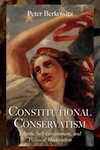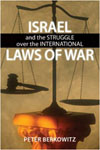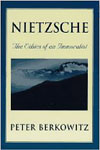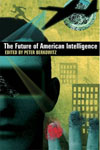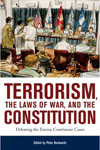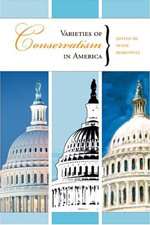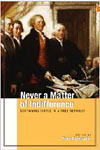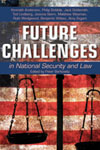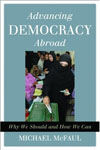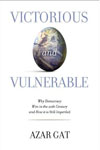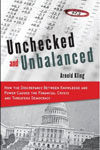Israel Program
on Constitutional Government
The Israel Program on Constitutional Government is directed by Peter Berkowitz. It is run under the auspices of Keren Keshet (The Rainbow Foundation) and in collaboration with Yossi Shain, professor of political science at Tel Aviv University. It meets four times a year -- in January, March, April and May -- at the Tel Aviv University Faculty Club. Its principal purpose is to stimulate discussion in Israel about the theory and practice of liberal democracy by bringing to Israel outstanding scholars, journalists, and jurists from the United States to share their work on the topic.
IPCG 2008 Seminar Series
Entering its sixth year, the program's theme for 2008 will be national security, law and constitutional government. The first guest, on January 27, will be Michael O'Hanlon, a senior fellow in foreign policy and national security at the Brookings Institution and a foreign policy advisor to the Clinton campaign. On March 9, our guest will be Matthew Waxman, a professor at Columbia University Law School, and former principal deputy director of the Office of Policy Planning in the State Department in the Bush administration. On April 13, our guest will be David Rivkin, a partner at the DC law firm of Baker Hostetler. Rivkin served in the Justice Department under Presidents Reagan and George H.W. Bush, and is a frequent author, particularly in the Wall Street Journal, on issues related to national security and law. And on May 11, our guest will be Jack Goldsmith, Henry L. Shattuck Professor of Law at Harvard Law School, a former assistant attorney general in the Bush administration, and author of The Terror Presidency.
IPCG 2007 Seminar Series
Entering its fifth year, the program's theme for 2007 will be national security and constitutional government. The first guest, on January 25, will be R. James Woolsey, former head of the CIA under President Bill Clinton and now a Vice President at Booz Allen. He will discuss America's national security interests in achieving energy independence. On March 11, the program will host Kori Schake, professor at West Point and a Hoover Institution fellow. Professor Schake will examine the limits of current American grand strategy, and whether alternative approaches, better suited to American political culture and governmental structure, may produce more effective international engagement. On April 15, Benjamin Wittes, a member of the editorial page at The Washington Post, will be the program's guest. He will explore legal issues surrounding America's detention, interrogation and prosecution of enemy combatants. On May 20, the program will host Aaron Friedberg, professor of politics at Princeton University, and former national security advisor to Vice President Cheney. Professor Friedberg will explore how constitutional constraints on the exercise of governmental power affect America's efforts to meet the current threat.
IPCG 2006 Seminar Series
Now in its fourth year, the program's theme for 2006 is constitutional design. The first guest, on January 26, 2006 will be Antonin Scalia, Associate Justice of the United States Supreme Court. His topic will be democracy and judicial review. On February 26, the program will host Donald Horowitz, Professor of Law and Political Science at Duke University. An expert on comparative constitutional government, Professor Horowitz will discuss how electoral schemes can reduce ethnic conflict. On March 26, the program will present Larry Diamond, Professor of Political Science at Stanford University and Senior Fellow at Stanford's Hoover Institution. He is a specialist on democratic development and regime change and will present a paper on the varieties of democratic constitutions. On May 7, the program's final guest for 2006 will be David Brady, Professor of Political Science and Business at Stanford University and Hoover Institution Deputy Director. An expert on the US Congress, Professor Brady will discuss the sources of the polarization that now afflict both House and Senate.
IPCG 2005 Seminar Series
(In 2005 the program was renamed the Israel Program on Constitutional Government and established a formal collaboration with the Hartog School of Government at Tel Aviv University.)
In its third year, the IPCG's theme was Democracy, Democratization, and the Rule of Law. In January, the program hosted a seminar at Tel Aviv University given by Professor Ruth Wedgwood of the Johns Hopkins University School of Advanced International Studies. She is a prominent human rights lawyer, and she spoke about American democracy and the changing nature of the laws of war. In March, the program featured William Kristol, editor and publisher of The Weekly Standard. He spoke on American foreign policy since 9/11, with special emphasis on Iraq, democratization, and the Middle East. In April, the Program's guest speaker was US News and World Report senior correspondent Linda Robinson, author of Masters of Chaos, a new book about the history of the Special Forces in the American military. She discussed democracy, culture and military discipline in America. And the final seminar of the year, in May, was given by Professor Michael McFaul of Stanford University, a specialist in Russia and democratization who will explore the history of American efforts at democratization outside the Middle East.
JPCG 2004 Seminar Series
(Beginning in February 2004, the program hosted lectures in both Jerusalem and Tel Aviv and changed its name to the Israel Program on Constitutionhal Government.)
The theme for the second year was Democracy and War. In November 2003, the Program's guest was Clifford Orwin, Professor of Political Science at the University of Toronto. He spoke on the first democracy at war. The December guest was Hoover Institution senior fellow Victor Davis Hanson. He discussed how democracies fight terrorism. In February 2004, the Program began meeting in Tel Aviv and collaborating with the Hartog School of Government. It presented Seth Waxman, former Solicitor General of the United States in the Clinton administration and partner at the DC law firmer WilmerHale. His topic was the protection of civil liberties in wartime. The March guest was Francis Fukuyama, professor of international political economy at the Johns Hopkins University School of Advanced International Affairs. He explored the strengths and weaknesses of the Bush administration liberty doctrine. The May guest was Tod Lindberg, research fellow at the Hoover Institution and editor of Policy Review, who examined the defining features of neoconservative thought.
JPCG 2003 Seminar Series
In its first year the Jerusalem Program on Constitutional Government chose as its theme Constitutional Culture. In February 2003, at the opening seminar the program hosted Jeremy Rabkin, professor of political science at Cornell University. He spoke on sovereignty and international law. In April, Joseph Weiler, professor of law at New York University spoke in the Program. He discussed the constitution of the European Union. And in May, Eliot Cohen, professor of strategic studies at the Johns Hopkins University School of Advanced International Affairs, explored constitutional government and statesmanship in wartime.

